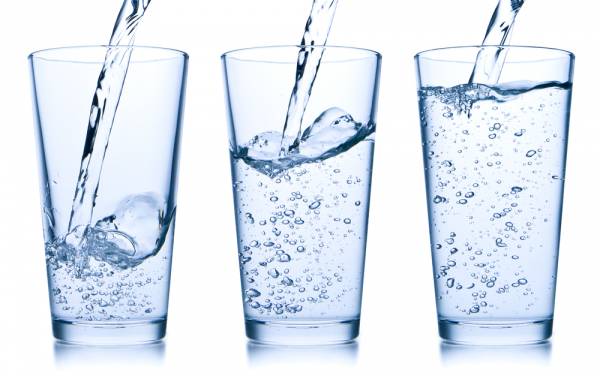 Arguably one of the most crucial aspects to our health, and making up 60% of our bodies, the benefits of drinking plenty of water are endless! With the weather beginning to warm up, it is now, more important than ever, to ensure we are hydrating our bodies efficiently- especially whilst exercising! But what does adequate hydration actually mean? And, how much water should we be drinking each day?
Arguably one of the most crucial aspects to our health, and making up 60% of our bodies, the benefits of drinking plenty of water are endless! With the weather beginning to warm up, it is now, more important than ever, to ensure we are hydrating our bodies efficiently- especially whilst exercising! But what does adequate hydration actually mean? And, how much water should we be drinking each day?
Importance of Hydration
Fluids are an integral part to maintaining a healthy body. The benefits of water can include:
Promotes good heart health by assisting in pumping blood through the vessels to your muscles.
Critical for healthy digestion and makes vitamins and minerals more accessible by allowing for the breakdown of your food.
Keeps airways inflated and effective.
Regulates the body’s cooling system, preventing you from overheating.
Removes toxins from the body.
Naturally suppresses your appetite and helps the body metabolise fat.
Being well hydrated during a workout improves your overall ability to perform exercises, improves sleep, facilities detox and aids in weight loss. Hydration needs are, however, highly individualised due to variations in sweat rates between people. Our sweat rate can be influenced by a number of factors including our body size, fitness level, genetics, temperature, wind, and exercise intensity. As many of us are aware of, sweating (although not very pleasant) is the body’s natural way of maintaining core temperature. This loss of body fluid that occurs can result in dehydration, and whilst low to moderate levels of dehydration can be tolerated, as our levels of dehydration rises not only can our performance be impaired, but also our ability to function throughout the entire day.
Dehydration is one of the leading causes of common problems such as headaches, fatigue, and joint pain.
Lack of water is the leading cause of daytime fatigue and poor concentration. As little as a 2% drop in your body’s water levels can trigger a fuzzy short-term memory and decrease strength and endurance performance of up to 15-20%.
If you don’t hydrate immediately following exercise, your body won’t receive its replenishing nutrients as fast, and your performance and recovery may be affected in the following days.
Hormone, chemical and electrolyte imbalance can weaken your immune system.
Lack of water causes your skin cells to deflate and feel tight, dry, and uncomfortable.
Now that you are aware of how vital water is for keeping you healthy, you might be stating to get an understanding of what will happen if you don’t drink enough of it!
Symptoms of Dehydration
If you are experiencing any of the following signs or symptoms of dehydration, it is important to cease any physical activity immediately and to carefully monitor your body until you are rehydrated:
How do we know when our body needs more water?
It is important to remember that by the time you feel thirsty, you are already dehydrated! Whilst individual recommended water intake can vary depending on several factors such as your diet, gender, geographic location, temperature, and exercise regime, the general rule of thumb is that females need around 2.2 Litres of water per day, and men around 3 litres daily. Onto of this, your body requires an extra litre of water for every hour you exercise.
A great indicator of hydration levels is the colour of your urine. Clear or pale-yellow urine means you’re well-hydrated while dark yellow indicates you should be drinking more water. Some fantastic ways to ensure proper hydration throughout the day include:
Regular water is of course best for you. However, dairy options and sports drinks contain carbohydrates and salt. When used appropriately, carbohydrates can have positive effects on performance, especially during moderate and high intensity exercise. Additionally, sodium is an important electrolyte that aids hydration by helping the absorption of water though the gut and assisting the body to ‘hold onto fluid’ more effectively.
Happy Hydrating!
The Nook Team